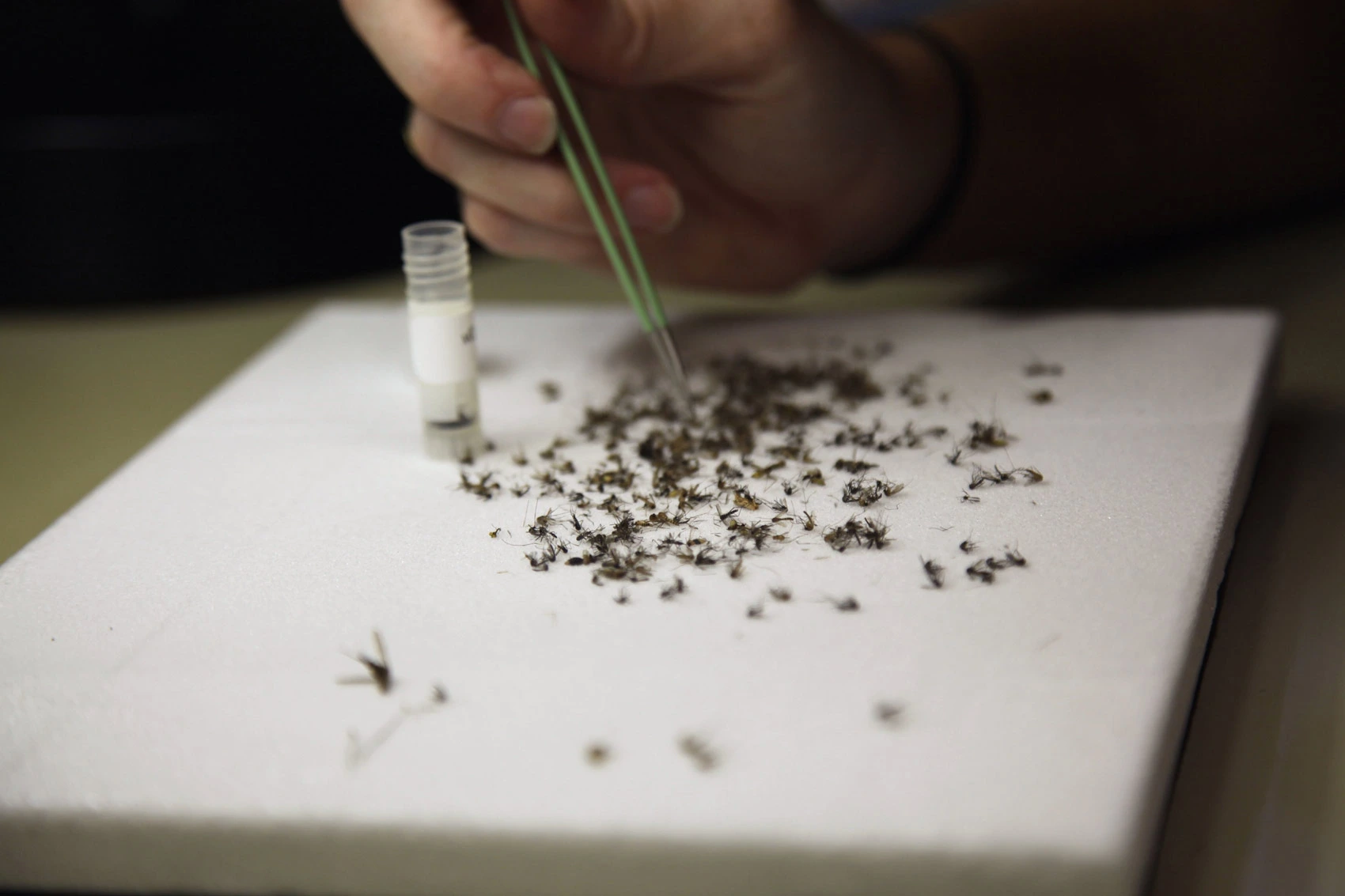|
Getting your Trinity Audio player ready...
|
Harris County Public Health identified the first positive case of West Nile virus from a mosquito sample this year in Zip code 77019, which stretches from River Oaks south of Memorial park in the west to Interstate 45 to the east.
As mosquito numbers continue to spike in and around Harris County, here’s what you need to know:
What is West Nile virus?
West Nile virus disease is caused by a virus that circulates between mosquitoes and birds. People catch the virus when mosquitoes bite infected birds before biting humans, according to the Centers for Disease Control and Prevention.
Humans are considered ‘dead-end hosts’ by disease experts, meaning the virus almost never spreads between humans or from humans to other species.
Is West Nile virus deadly?
Eight out of 10 people infected with West Nile never develop any symptoms.
For about one in five infected people, the disease can cause symptoms like headaches, body aches, joint pains, diarrhea or a rash. While symptoms can last for weeks or even months in rare cases, nearly all people who don’t become severely ill will recover completely.
Around one in 150 people infected with West Nile suffer serious and potentially fatal illnesses. According to the CDC, severe illness can include symptoms of high fever, neck stiffness, stupor, numbness or paralysis, headache or neck stiffness.
What does West Nile virus do?
Most people infected with West Nile virus will never develop any symptoms.
In very rare cases of serious illness, the virus attacks the central nervous system (brain and spinal cord) and causes inflammation and swelling of the brain (encephalitis) or inflammation of the brain’s surrounding membranes (meningitis). Both conditions can require weeks or months for full recovery and can cause permanent damage to the brain.
Around one out of 10 people with severe illness from West Nile virus die.
Does West Nile virus affect pregnancy?
Pregnant people do not face any increased risk of West Nile infection. A pregnant person with West Nile can pass the virus to their baby, but the chances are very low – “only a few” cases of newborn West Nile virus infection have ever been reported, according to the CDC.



